What is kraft paper, and why is it such a popular choice for packaging?
As the demand for more sustainable packaging methods increased, kraft paper has played a significant role in meeting this demand.
Kraft paper packaging solutions have become increasingly popular in the industry, and this material's potential is ever-growing.
But why?
Let's dive straight in and find out what kraft paper is and why it has become so popular!
What is kraft paper?
Kraft is a German word meaning 'strong', and kraft paper certainly lives up to its name!
The kraft pulp process makes kraft paper brown, tear-resistant and durable.
Kraft paperboard is ideal for producing durable kraft wrapping paper and strong cartons and rigid boxes. In fact, kraft paperboard comes in a wide variety of colours and shades, making it highly versatile for branded packaging solutions.
The porous, textured surface of raw kraft paper can be printed on and finished to a high standard to create a high-quality, rustic appearance.
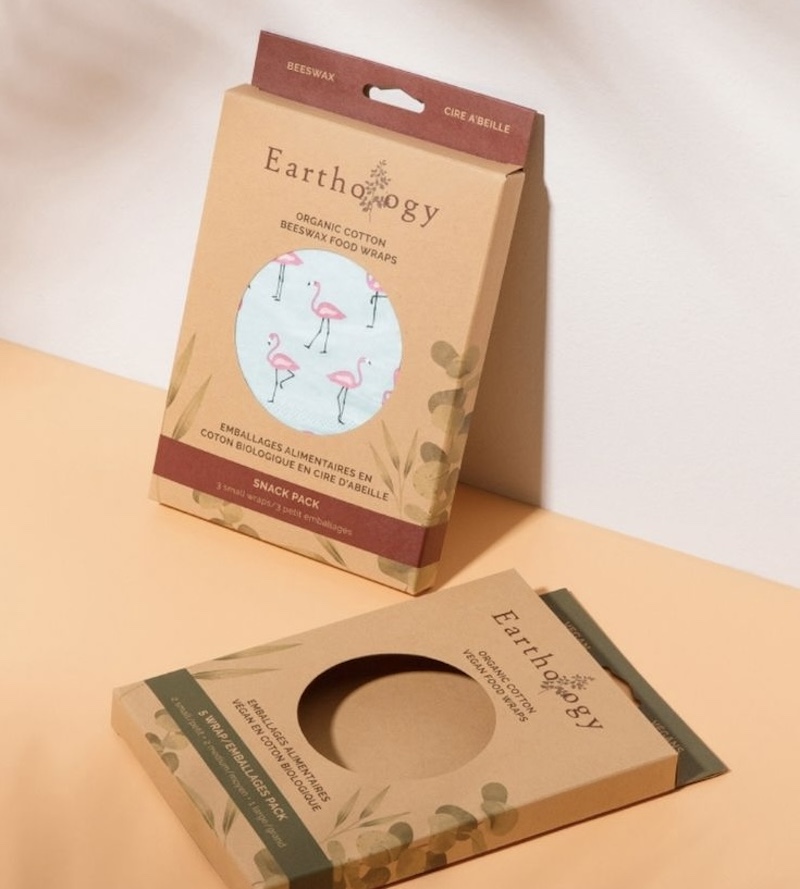
The kraft paper production process
Kraft paper is named after the Kraft pulping process, which was first developed by a German named Carl F. Dahl in the 1880s.
In paper production, wood is usually pulped first (reduced to a pulp), but Dahl discovered that the cellulose pulp could be treated with chemicals (sulfates) to make kraft paper stronger.
Initially used as a wrapping material due to its durability and sturdiness, kraft paper became the preferred material for manufacturing packaging solutions, such as the standard brown cardboard box we all know today.
Kraft vs. regular paper
Some might say it's just paper — what's so special about it?
Well, simply put, kraft paper is stronger.
The kraft process removes more lignin from kraft wood pulp, leaving behind more cellulose, which provides paper with tear resistance and durability.
Raw kraft paper is also more porous than ordinary paper, making it slightly less effective for printing, but highly susceptible to special finishing effects, such as:
Embossing/debossing.
foil stamping.
What is kraft paper used for in packaging?
It is now mostly used in corrugated boxes and is also very popular for carton boxes!
Corrugated boxes have helped the e-commerce industry because kraft paper is durable, providing protection for products and making them resistant to extreme shipping environments.
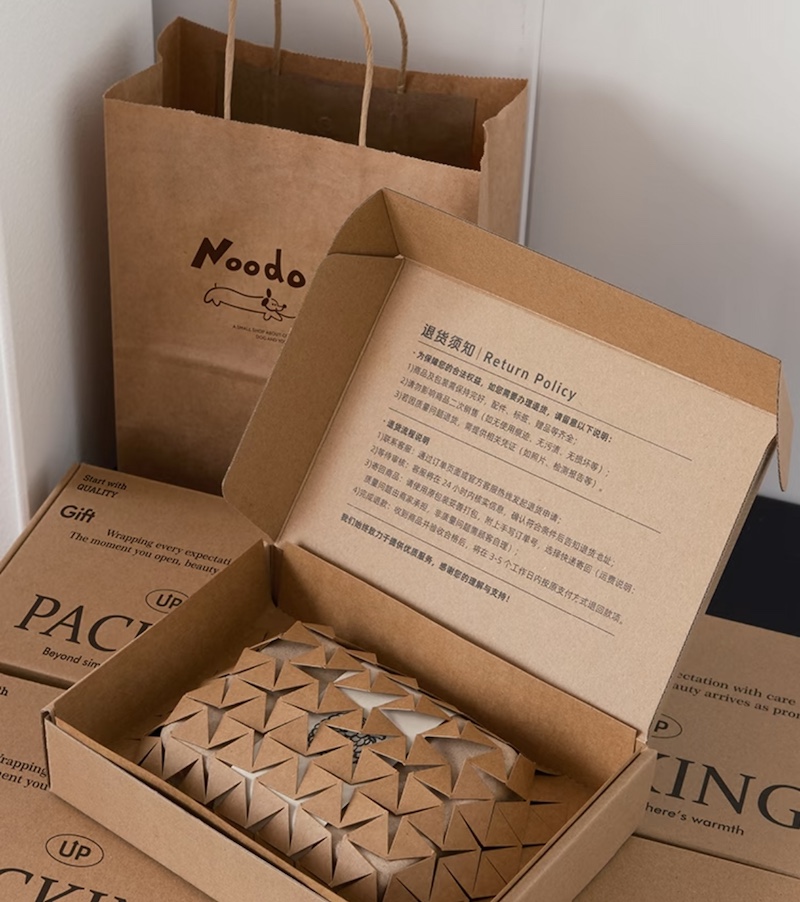
Businesses also tend to use brown kraft paper cartons to attain sustainability objectives, as the rough and crude appearance of kraft paper explicitly represents eco-friendly efforts.
Kraft paper is highly adaptable, with a wide range of innovative packaging solutions in the modern industry.
Types of kraft paper:
Coated unbleached kraft (CUK):
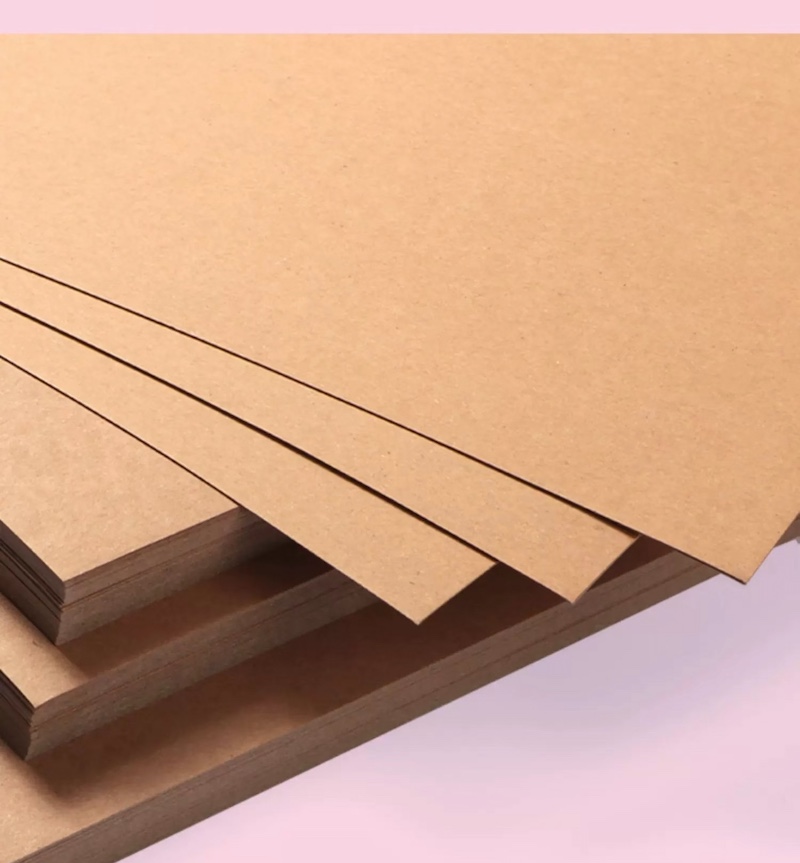
This is believed to be the simplest type of kraft paper.
No bleaching or additional chemicals are used besides those patented by the Kraft process.
For this reason, it is also referred to as solid unbleached sulfate (SUS) and is made of 80% virgin fibre wood pulp/cellulose kraft pulp.
It is highly tear-resistant and stiff yet not too thick.
In fact, it is the lightest kraft paper-based packaging substrate.
It has a naturally occurring kaolin clay-titanium dioxide coating on its surfaces to enhance smoothness and facilitate printing.
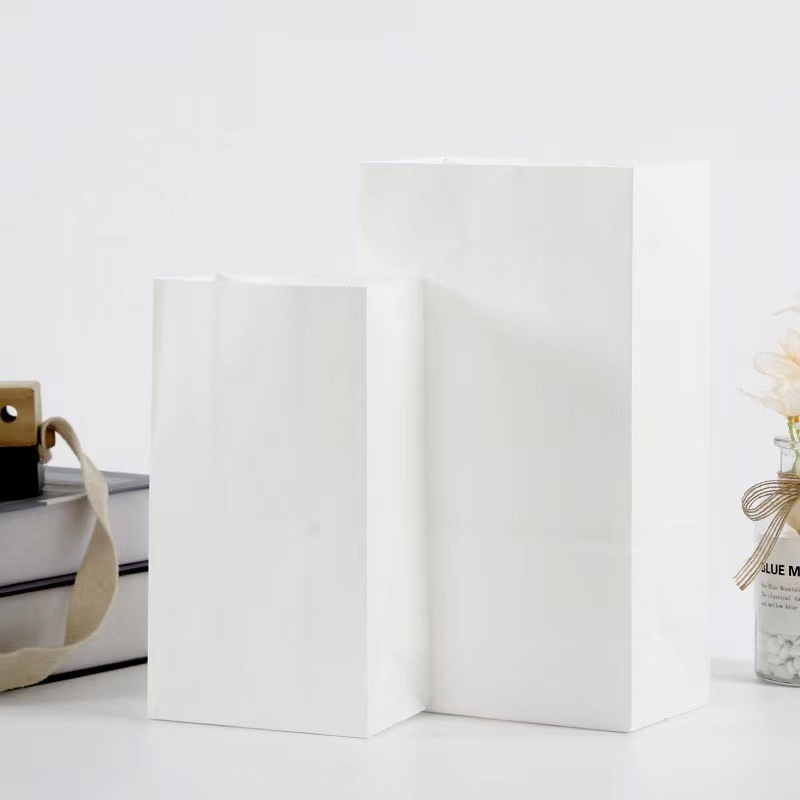
Solid Bleached Kraft Paper (SBS):
Although unbleached kraft paper is considered more environmentally friendly due to its natural colour and lack of chemical treatment, it is not always the best option for certain applications, such as packaging luxury or high-end products.
In such situations, bleached kraft paper can be a better choice because it has a smoother surface and a brighter appearance, which can improve the quality of printing and give products a more high-end look and feel.
However, it is worth noting that the bleaching process may have an environmental impact, so the trade-offs between aesthetics and sustainability must be carefully considered when choosing between bleached and unbleached kraft paper.
Ultimately, the decision will be based on the particular business's needs and the product it is packaging, as well as its dedication to sustainability and environmental responsibility.
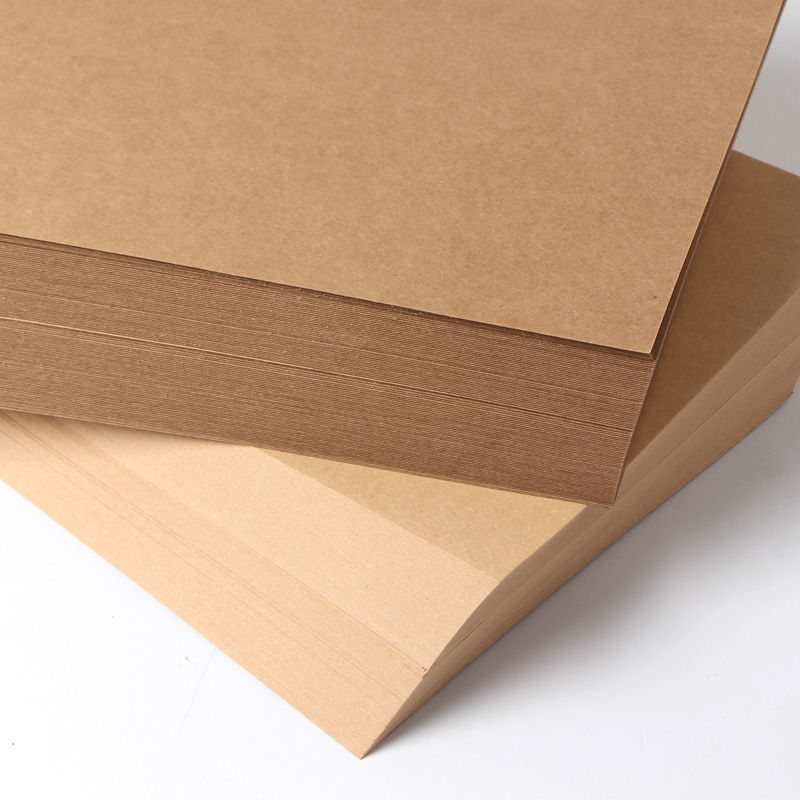
Coated Recycled Board (CRB):
CRB is made from 100% recycled kraft paper.
Its specifications and tolerances are lower than those of SBS because it is not manufactured using virgin fibre.
Nevertheless, recycled kraft paper is a cheap packaging substrate that can be used for products where tear resistance/strength is not required, such as cereal boxes.
Manufacturers can easily pass on the cost savings to consumers and gain a competitive edge in the market.
The above materials are what we normally refer to as folding cartons.
In the case of corrugated boxes, kraft paper is added in layers to enhance strength.
This process is called 'fluting'.
Learn about corrugated packaging.
The benefits of kraft paper
It is 100 per cent eco-friendly, as well as being stronger and more protective.
It breaks down naturally within a couple of weeks, just like fallen leaves.
It has no effect on the environment, yet nobody has to wait that long.
Kraft paper is recyclable and can be used in new packaging.
Having FSC-certified recycled packaging can help you sell your product because the world is currently learning to value the environment and understand why it should be preserved.
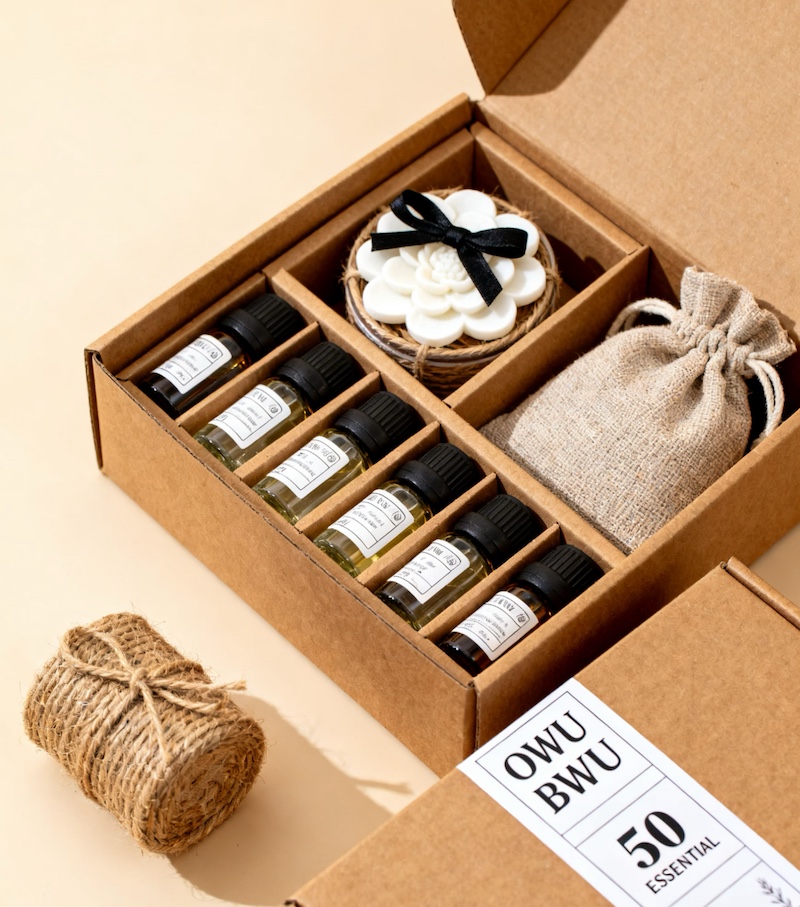
Kraft paper customisation
The possibilities for customising kraft paper are enormous, and it can be used to make your packaging look personal while simultaneously advertising your brand.
Many printing companies offer custom kraft paper printing, enabling you to add your branding or design to your package.
This could include printing your company logo, tagline, or other artwork on your kraft paper packaging. You can also choose from a range of finishes to make your packaging look and feel unique, including matte or gloss.
You can also experiment with different colours and patterns to create a packaging design that reflects your brand's personality.
You can use your kraft paper packaging to give your customers a memorable unboxing experience, which will raise brand awareness and foster customer loyalty.
The green effect of kraft paper
The environmental impact of kraft paper is a critical factor to consider when selecting it as a packaging material.
The wood pulp used to make kraft paper is a renewable resource, making it a more sustainable choice than other packaging materials.
Moreover, kraft paper can be recycled and is biodegradable; therefore, it causes less harm to the environment than plastic or polystyrene containers.
The environmental impact of kraft paper also depends on the manufacturing process.
The Kraft process involves using a combination of chemicals to break down wood chips, which can have an adverse environmental impact if not carried out properly.
Nevertheless, most kraft paper manufacturers have adopted sustainable business methods to reduce their environmental impact, including using renewable energy sources and producing minimal chemical waste.
Overall, kraft paper is a more environmentally friendly type of packaging than many other materials on the modern market.
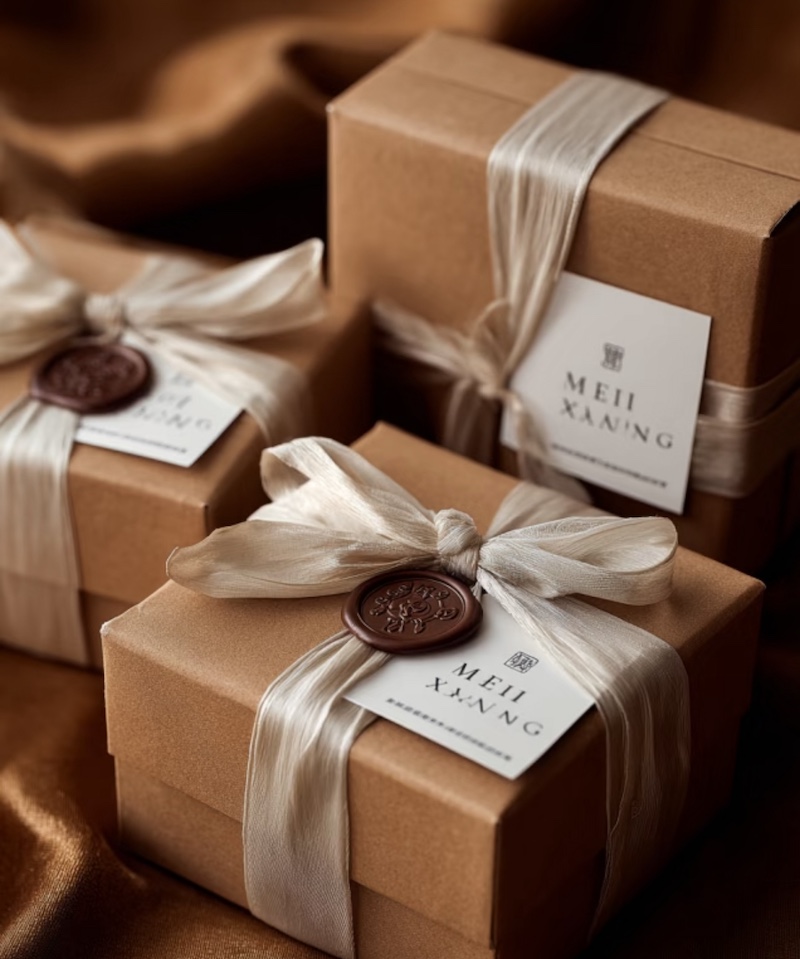
Using Kraft paper, Sonhad Chocolate created a secure and robust package capable of containing their handmade chocolates, with an absorbent kraft paper surface for writing notes.
The kraft paper with foil-stamped information also offered the rustic look and feel that aligned with their branding and sustainability pledge.
By using kraft paper, Sonhab Chocolate was able to create a consistent brand experience while adhering to its values and sustainability principles.
Not only does Kraft paper improve the customer experience, it also helps customers minimise their carbon footprint and waste, providing a win-win solution for both the business and the environment.





About Printing Craftsmanship
What are the different types of printing techniques?
There are various printing techniques used for different purposes, including:
Offset Printing – Ideal for high-volume commercial printing, offering sharp and high-quality images.
Digital Printing – Suitable for short-run printing with fast turnaround times.
Screen Printing – Used for printing on textiles, plastics, and other materials with thick ink layers.
Hot Stamping – Adds metallic or pigmented foil using heat and pressure for a luxurious look.
Embossing & Debossing – Creates raised or recessed designs for a textured effect.
UV Printing – Uses ultraviolet light to instantly dry ink, offering vibrant colors and enhanced durability.
What is embossing, and how is it different from debossing?
Embossing is a technique that creates a raised impression on a material, while debossing presses the design inward, creating a recessed effect. Both techniques add texture and sophistication to printed materials.
Special Shape Boxes
Can I order a sample of my packaging box?
Yes, we strongly recommend that you do so, we provide a variety of sample types to meet different usage situations and help you guarantee the best results!
Rigid Lift-off Box
Can I order a sample of my rigid box?
Yes, we strongly recommend that you do so, we provide a variety of sample types to meet different usage situations and help you guarantee the best results!
How long does it usually take from design confirmation to delivery?
The lead time is usually 15-25 days, depending on the production of the order




Start Your Packaging Journey Today
Discover Our Curated Collection of Bespoke Packaging Cases & Tailored System Solutions
© 2025 WINPACK PRINTING. All rights reserved

























Wenhua Printing packaging
winpackprinting
Winpack Printing